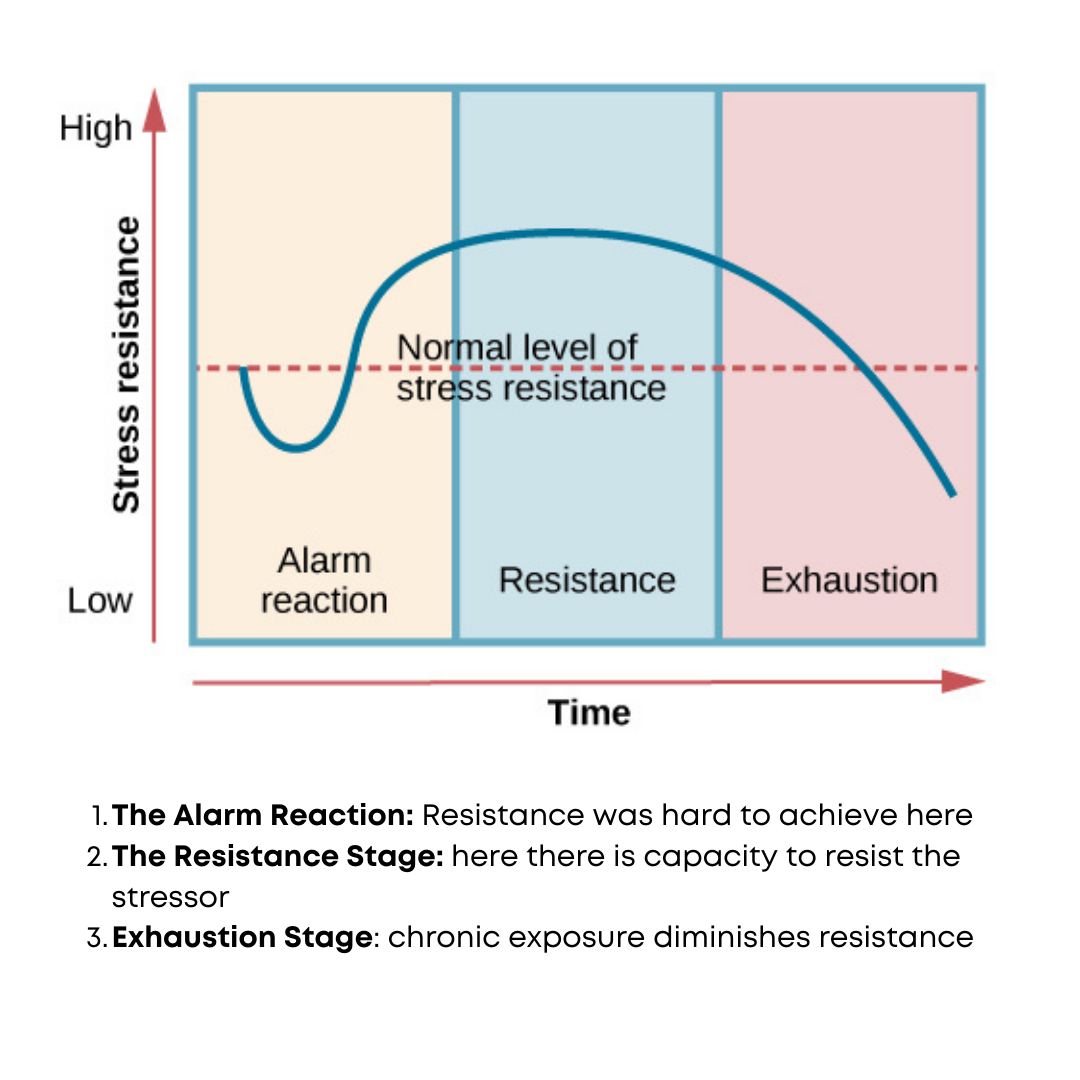Stress in inevitable, it is a part of daily life and extremely hard to avoid. We often don’t have control over the external circumstances that cause this state of stress, but what we do have control over, is our response to the stressful event or experience.
Hans Selye, an Endocrinologist in the 1950’s, also known as the “Father of stress research”, said, “ It is not stress that kills us, but our reaction to it that does.” He showed the medical world that there is a connection between emotions, our response to stress, and disease. Previous to Hans Selye’s work, the medical world dismissed this connection for several centuries. When we look to ancient medicine from the Greek, Romans, and Ayurvedic physicians, the basis of their work was based on this connection between mind and body, and how disease is a manifestation of emotion.
Dr Esther Sternberg, a medical professor in Arizona, connected the dots between stress, our nervous system , and the influence they have on our immune system. Her work has been able to show us how specific emotions like anger for example can lower our immune system’s ability to be resilient and ward off disease. Anger has been shown to increase proinflammatory markers like Interleukin 6, making one more susceptible to inflammation and disease.
We all have various stress triggers, from relationships, to work, to past experiences, and even the environment. Under stress the body responds through activating our sympathetic branch of the nervous system, our fight, flight, or freeze reaction. This reaction is there to serve a purpose, in that it shunts the blood to the muscles, it raises our heart rate, it is told by the brain and hormones that we are in danger, and we need to run! The problem arises when we get stuck in this state, and we can no longer adapt to stressors as they show up. We could be having a thought about work, or a challenge in traffic, or an anticipatory stress response to the future, the physiology responds as if you need to run from the danger, giving you a whole lot of cortisol that has nowhere to go as you are just sitting having the thought.
This chronic increase in cortisol overtime dampens the immune response creating a breeding ground for inflammation and other unwanted visitors.
Hans Selye introduced the General Adaptation Syndrome to the world where he explained the different stages of our response to stress and the actions of the Hypothalamic – Pituitary- Adrenal Axis.

Although, a simplified description of what happens, it gives a clear indication that your response to stress is not as simple as feeling stressed, there are physiological changes going on in the body.
Studies have been done to show how this inability to adapt causes challenges in the immune system and the ability to heal. A study of college students was done before exam time compared to summer vacation to see how long it would take for their wounds to heal. It was noted that it took 3 days longer around exam time compared to the summer. The immune cytokines like Interleukin Beta production were reduced, a key player in modulating the inflammatory response in the body.
In knowing all of this we realize how interconnected everything is. From our thoughts to how our nervous system responds to how our immune system will then behave. In order, to have a healthy and vital immune system, it is necessary to work on our bodies ability to adapt to stress. Below are some things you can consider, to create more resilience to stress.
Meditation
Has been shown to increase CD4 cells and T cells that protect the immune system. It also brings the body into a parasympathetic state, our rest, digest, and healing branch of the nervous system from the sympathetic – the fight, flight, or freeze response.
Here is a quick meditation you can incorporate right away!
Here is a device we use called Brain Tap that helps you get into a relaxed state while working on different elements of your immune health.
Infrared Sauna
The heat from a sauna activates Nrf2 which then increases the production of heat shock proteins that influence cortisol receptors helping to lower the stress response in the body while creating resilience.
Ashwagandha
This adaptogenic herb can help modulate the innate and adaptive immune systems while creating resilience and adaptability in your stress response. Studies have shown this herb to increase certain immune cytokines and immunoglobulins that protect your immune health from infections and disease.
Restful Sleep

“The investigators found that at age 50, those who slept 5 hours or less were 30% more likely to be diagnosed with multiple chronic diseases over time, (hazard ratio [HR] = 1.30; 95% CI: 1.12 – 1.50; P < .001) compared with their peers who slept 7 hours.”
The above is from a study done on sleep duration and its impact on your health and susceptibility to chronic disease. Creating a night time routine with proper sleep hygiene and using tools to support deep restful sleep not only supports how you move through the following day but your ability to adapt to stress.
We have a sleep fix course to help you with just that!
Vitamin C
Although known for its immune boosting and regulating properties. Vitamin C has also been shown to improve mood, decrease depression, and control anxiety in some studies. It works to lower the reactivity in the body to stress any have a hand in supporting neurotransmitters like GABA in the brain.
The above are just some tools you can incorporate right away to support your stress response in your body and create resilience in your mind. This ability to adapt to stress allows for a healthier immune response and prevention of diseases that could follow a state of chronic stress.
Sources:
https://www.ncbi.nlm.nih.gov/pmc/articles/PMC8397213/
https://pubmed.ncbi.nlm.nih.gov/32745879/
https://onlinelibrary.wiley.com/doi/full/10.1111/imm.12341
https://www.themarginalian.org/2015/07/20/esther-sternberg-balance-within-stress-emotion/


